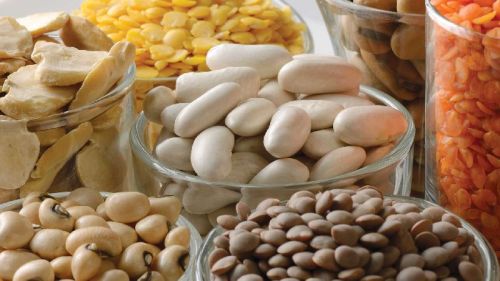
Company Information
Ask for more detail from the seller
Contact SupplierPulses are the seeds of certain plants of the legume family — plants that produce seeds or grains that grow within pods, such as lentils, beans, peas and chickpeas. Pulses are legume crops that are grown for their dry seeds to be used as food or grain. The Food and Agricultural Organization definition of pulses excludes seeds grown as oil seeds (ground nut, soyabean) or consumed as fresh vegetables (green peas).
Pulses are an extremely healthy food due to their high protein content relative to other vegetables. Their other nutritional benefits include providing a source of complex carbohydrates, important vitamins and minerals such as folate and iron, and antioxidants. People eat the pulses seeds whole, dehulled or as a flour. Pulses contain as much as 25 per cent protein, no cholesterol and virtually no fat, unlike meat, poultry, fish and eggs.
Some of the first crops cultivated by humans were pulses — human beings have been growing pulses for thousands of years. Indians consume pulses whole or as split seeds (called dals). Pulses are most nutritional when consumed along with a grain or cereal to provide a good source of methionine, the level of which is low in pulses. For instance, rice is often eaten with dal, baked beans with bread, etc.

